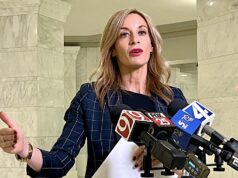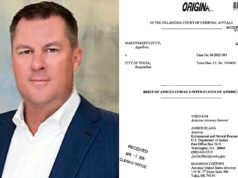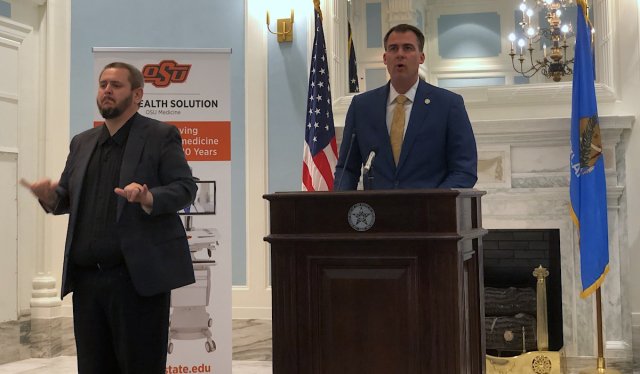
Saying that health officials believe Oklahoma’s “curve is flattening” in terms of day-to-day COVID-19 hospitalizations, Gov. Kevin Stitt said today he will be amending his executive order to extend its “safer at home” provisions for seniors and the immunocompromised through May 6.
However, he will be bumping up the expiration of another part of his order: the prohibition on elective surgeries. Originally set to run through April 30, Stitt said hospitals and surgery centers will be able to resume their full scope of surgeries April 24.
The amended executive order was posted online and dated Thursday, April 16. A second amendment was also added to outline the elective surgery resumption plan.
“We are making tremendous progress, but as I’ve said before, now is not the time to take our foot off the gas,” Stitt said. “What we do together over the next three weeks will greatly determine the outcome of what we can do after April 30.”
Emphasizing a need for continued social distancing, handwashing and limited trips to grocery stores, Stitt made his announcement inside the Oklahoma State Capitol. Outside, about 100 vehicles circled the building, honking, flying flags and promoting slogans on their windows such as, “Let’s git back to work OK.”
“Because we are flattening the curve, we are working on plans to reopen our state. But let me be clear: We are not out of the woods yet,” Stitt said. “Of course you’ve got people coming in and people exiting the hospital.”
Stitt said the current hospitalization total peaked on March 30 “and has slowly gone down.” He said that has allowed his task force to plan for how and when businesses currently deemed non-essential will be able to re-open.
“We are working on plans to open up. We are going to have more things in the future. We are going to do it safely,” Stitt said, citing “restaurants, barbershops, eventually museums — all those social gathering businesses.”
Stitt said he spoke with Tulsa Mayor G.T. Bynum, Oklahoma City Mayor David Holt and other mayors today, as well as the Oklahoma Restaurant Association. Concerning restaurants, he said many questions are being discussed.
“Do we need to test all of the workers at a restaurant? Do they need to mask-up? Do we spread the tables six feet apart?” Stitt said. “From the beginning, I have been committed to making decisions based on scientific data and the advice of public health officials in the state of Oklahoma.”
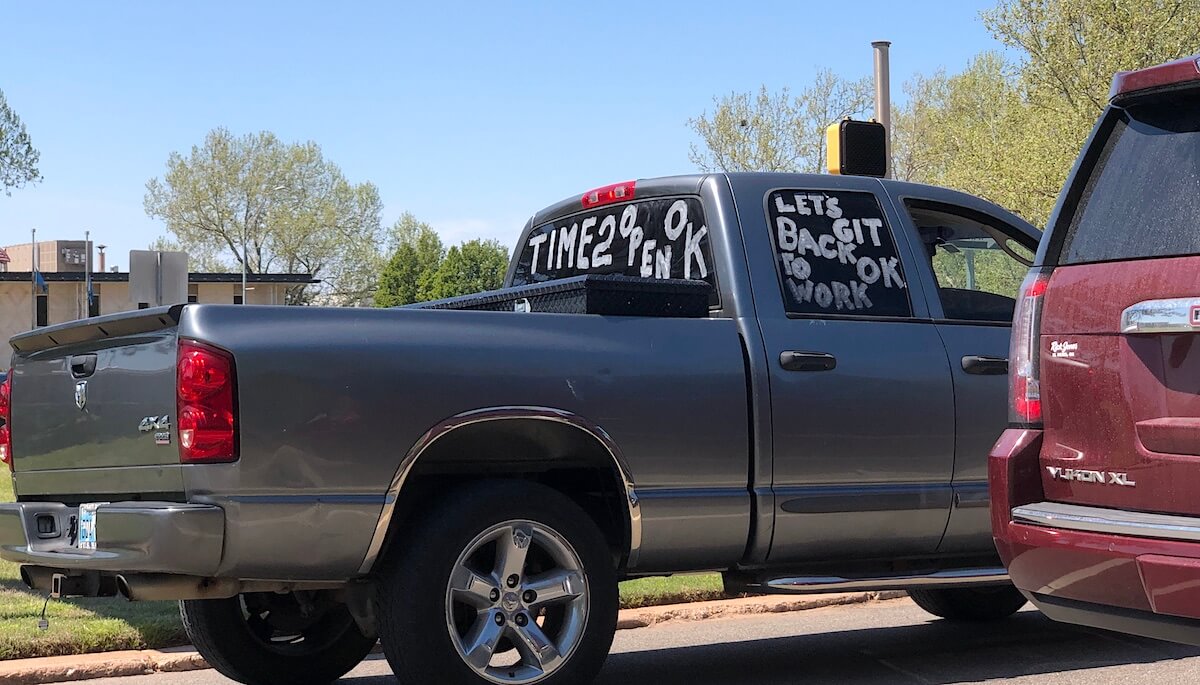
Shrum: ‘They can do post-mortem testing’
One of those officials, Secretary of Science and Innovation Dr. Kayse Shrum, addressed efforts to increase access to telehealth services and whether more testing will be implemented postmortem to determine whether other Oklahoma deaths have been related to COVID-19.
“We have had conversations with the medical examiner. They can do post-mortem testing, and those specimens can be collected and frozen until another time,” Shrum said. “It all depends on those circumstances — whether or not someone would receive an autopsy.”
Earlier Wednesday, the House Democratic Caucus issued a press release asking Stitt to declare grocery store, food retail and food processing workers as “first responders” on a temporary basis. Such a designation would provide two weeks of paid medical leave, child care, access to COVID-19 testing and an increase in access for personal protective equipment.
“The governor has spoken several times about how Oklahoma’s supply chain is in good shape,” said Rep. Cyndi Munson (D-OKC). “He is able to say that because of the hard work of the dedicated men and women — like my dad who is a grocery worker — working around the clock in our community grocery stores. We sent this letter because it’s time to do our job as lawmakers and protect them.”
Asked about the request, Stitt said he had another conference call with legislators at 4 p.m.
“We’ve done a lot of things for our first responders around the state, and we are looking at all of that information,” Stitt said.
The governor’s relationship with lawmakers has been strained over the past weeks owing to a dispute about the state budget. On April 14, leaders of the Legislature filed a lawsuit seeking to force Stitt to call a meeting of the Board of Equalization.
“It’s just disappointing,” said Stitt, who had breakfast with House Speaker Charles McCall (R-Atoka) and Senate President Pro Tempore Greg Treat (R-OKC) this morning. “Those are my friends, and I think of all the House and Senate members as my friends.
“It’s disappointing that we are over here focused on saving lives, building up the hospital plans, working on getting the economy back going, working on all those Oklahomans who have lost their jobs. So (I) haven’t focused much on the budget at this point. I’ve really been diving into the COVID stuff, and that’s where my focus has been today and really for the last 30 days.”
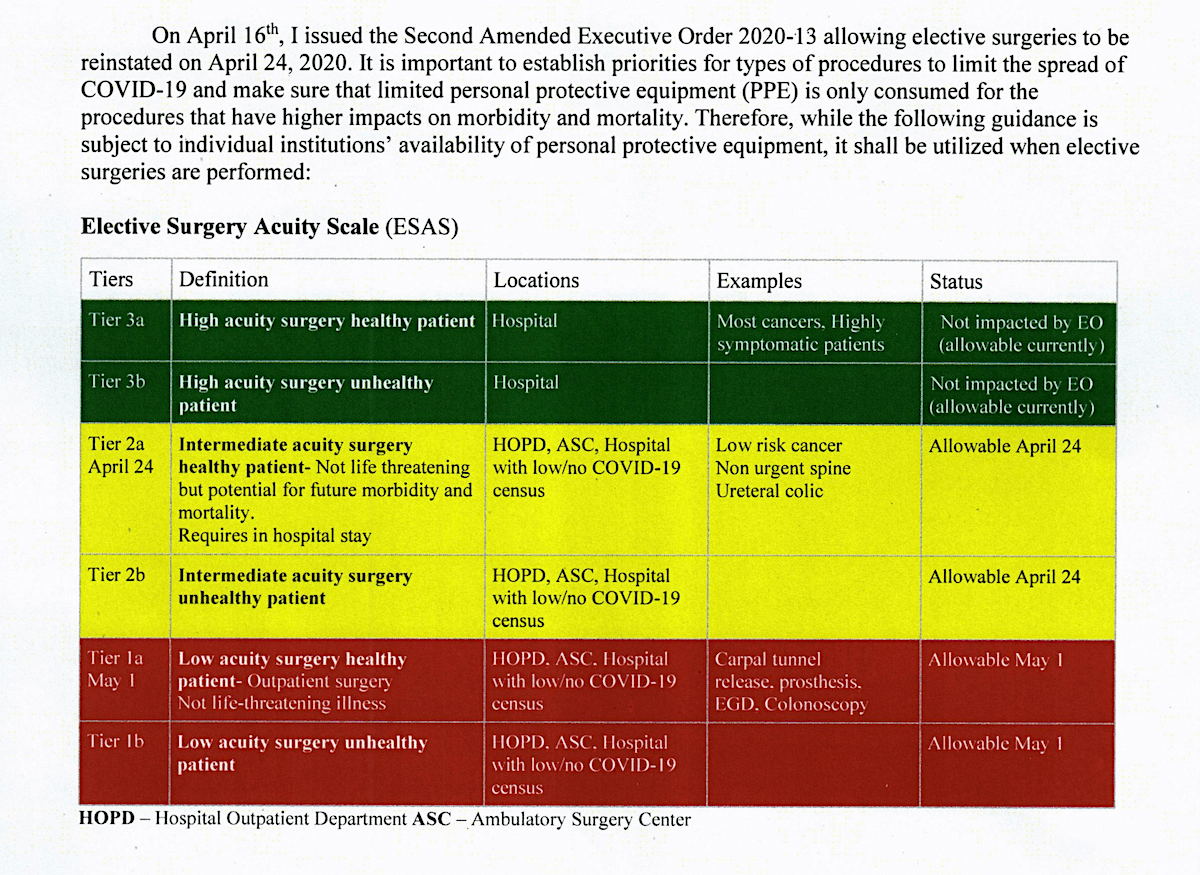
Latest death numbers released
Earlier Wednesday, the Oklahoma State Department of Health announced 15 more people had died from COVID-19, which brought the state total to 123. Of 29,098 test results tabulated, 2,263 positive cases have been confirmed, with 510 Oklahomans hospitalized. About 7.7 percent of those tested so far have been diagnosed with COVID-19.
(Update: This story was updated at 10:55 a.m. and 3:42 p.m. Thursday, April 16, to include a link to the governor’s amended executive order and second amended order once they were posted online.)










